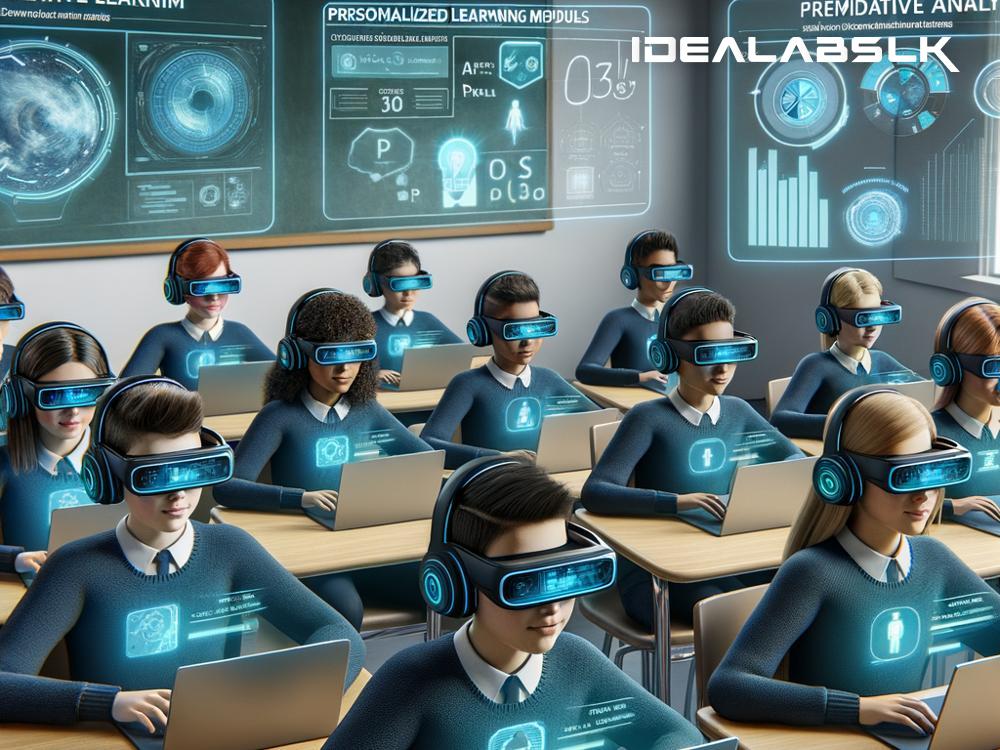The Future of Predictive Analytics in Personalized Learning
In the ever-evolving landscape of education, technology has been a driving force in pioneering new methods of teaching and learning. Among the most transformative technologies in education is predictive analytics, a field that uses data and statistics to predict future events. This technology holds the potential to revolutionize personalized learning, making education more effective, engaging, and tailored to individual needs. But what exactly is predictive analytics, and how can it shape the future of personalized learning?
What is Predictive Analytics?
Predictive analytics involves analyzing current and historical data to make predictions about future or unknown events. In education, this can mean using data from students' performance, learning habits, and preferences to customize their learning experiences. By understanding each student's unique learning path, educators can tailor lessons, resources, and support to fit individual needs.
The Power of Personalized Learning
Personalized learning is an educational approach that aims to customize learning for each student's strengths, needs, interests, and pace of learning. Unlike the traditional one-size-fits-all approach, personalized learning acknowledges that every student learns differently. Its goal is to make learning more engaging and effective by treating students as unique individuals.
Predictive Analytics: Shaping the Future of Personalized Learning
So, how can predictive analytics shape the future of personalized learning? Let's delve into its capabilities and potential impacts.
1. Identifying Learning Patterns and Gaps
Predictive analytics can analyze data from quizzes, assignments, and interactions with learning materials to identify patterns and gaps in a student's understanding. This information can help educators customize their teaching strategies to address each student's weaknesses and build on their strengths.
2. Tailoring Educational Material
Imagine a learning environment where every student receives a unique set of learning materials tailored to their learning style and pace. Predictive analytics can make this a reality by analyzing how students interact with materials and what helps them learn best, then adjusting the content, format, and difficulty accordingly.
3. Improving Engagement and Motivation
By understanding what excites and motivates each student, predictive analytics can help create more engaging learning experiences. It can identify topics and activities that capture students' interest, making learning more enjoyable and effective.
4. Early Identification of At-Risk Students
One of the most powerful applications of predictive analytics in education is its ability to identify students who may be at risk of falling behind or dropping out. By noticing early warning signs, educators can intervene with targeted support to help these students succeed.
5. Facilitating Adaptive Learning Environments
Predictive analytics is crucial in creating adaptive learning environments that adjust in real-time to the learner's needs. These environments can modify the difficulty level of tasks, provide additional resources, or offer challenges based on the learner's performance and progress.
The Challenges Ahead
While the potential of predictive analytics in personalized learning is immense, it is not without hurdles. Issues such as data privacy, security, and ethical concerns about data use are paramount. Furthermore, ensuring equitable access to the technology for all students remains a significant challenge. Educators and policymakers must address these concerns to fully realize the benefits of predictive analytics in education.
The Road Ahead
The future of predictive analytics in personalized learning is promising but requires concerted efforts from educators, technologists, and policymakers to navigate its challenges. This technology has the potential to create a more inclusive, engaging, and effective educational system that recognizes and nurtures the unique potential of every student.
As we move forward, it's crucial to continue the dialogue about the ethical use of data, prioritize equity in access to technology, and train educators to leverage these tools effectively. The journey toward a more personalized learning experience for all students is just beginning, and predictive analytics will undoubtedly play a pivotal role in shaping its path.

